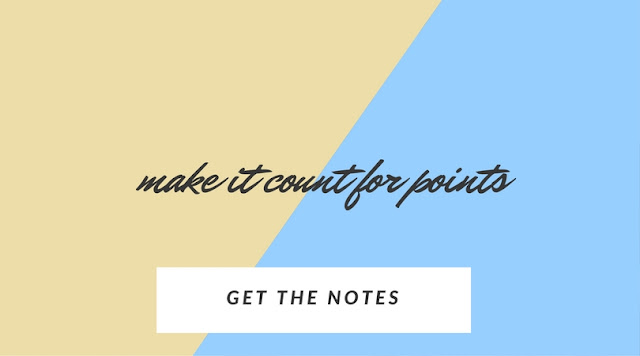Sorry, this is the less sexy part of it all: you actually have to do the work. Think of it as trying to get fit. You start in small sessions, but you do it regularly – because starting over is the worst. When you know that you are taking action, you will feel more in control and less anxious.
| What a difference 8 weeks can make |
I would like to share a story from my own life here. Some time ago, one of my family wasn’t well, and I had to travel abroad to be there with them. I ended up spending all of March and April over there. Needless to say, it was a stressful time with surgery etc. One of the things I did to help me cope was going for regular walks in a nearby park, more of a forest really.
Early March is still deep winter there. There was more snow there than I can describe in this forest. Day after day I went for walks. I noticed that there were a few puddles here and there. Some days there were even streams of melted water: spring was on its way. Other days the puddles would freeze over, but it seemed that the overall amount of snow was diminishing very slowly.
I knew from experience that in a few weeks, certainly by early May, there would be a heatwave. But walking through this forest in March I simply couldn’t fathom how all this endless snow could melt, the grass emerge and leaves erupt in just 8 weeks. The “deadline” seemed ridiculous given the glacial pace of the progress, no pun intended. Yet I knew it was going to happen: it happened every year until now – the snow melts and summer arrives in all its beauty.
Did it happen in the end? It sure did. Leaves, flowers, birds singing – the whole thing. It taught me a few things. One, slow progress is still progress. Two, some days you will take 2 steps back, but so long as you keep going the trend will be in your favour. Three, sometimes it can seem unfathomable, but it doesn’t means its impossible. Nature chips away at snow. I suggest you chip away at your studies. Is this too lyrical for you?
| What?! |
How about a much more clear cut example, once again from my own life. The gym. Leg press. Strategy: one to three reps at maximum intensity (inspired by N.N. Taleb’s Antifragility – an incredibly worthwhile read). Because muscles get stronger with exercise, the weight had to go up in order to maintain maximum intensity. So every other session, I would go up a notch in weights.
The first time I went near the leg press, I could only do 45 kg. Just under my body weight. A month later, I was in the triple digits. If somebody had told me that I would be able to lift that amount, I would have laughed it off as ridiculous, dangerous and impossible. Turns out it wasn’t any of those things. A commitment to slow steady progress will achieve phenomenal results.
This is a tough one. There are a lot of people out there whose self-esteem hinges on achievements, ranks and medals – academic or otherwise. It is an adaptive strategy in the short term. We all want to feel good about ourselves. So if you make a deal with yourself that you will only feel significant and worthwhile if you do really well in exams – you are going to be really committed and motivated. Sounds good? Well, it is a recipe for disaster. Why? Because the low you will experience if things don’t go your way is hell. It is asymmetric: the low that comes with not meeting your own expectations is deeper than the high of achieving. The point here isn’t that the Leaving Cert isn’t important. The point is that your should be your own best friend regardless of your grades. If you offer yourself the kind of support your would offer your best friend when they are going through a tough time, you will actually achieve more. In addition, we think of certain things as successes and failures, but in truth, a lot of the time we only find out years later whether something was a blessing or a curse. The sooner you learn that bouncing back from “failure” repeatedly is the road to success, the sooner you will succeed. Whatever happens, don’t take it personally.
7. Write it down
This means writing down your list of stuff to do and journaling. Writing things you need to get done down increases the probability of you getting it done. If you are thinking about something, writing things down makes your thoughts more specific. It also stops you from thinking in a circle, which is so frustrating. In addition, it clears your metaphorical RAM and gives you the opportunity to move onto the next thing – on which you can now focus instead of being distracted by your circular thoughts. It’s documented in studies and certainly has been my experience.
We make a lot of assumptions and have beliefs that we are not aware of. Perhaps, you presume the worst of yourself, your teachers or your friends. Perhaps, you are setting inhumanely high expectations of yourself or others. Perhaps, you have been trying to achieve something with only one strategy and haven’t even considered other options. Apps such as Calm and Headspace are a good place to start. It is a simple process where you try to focus on something (usually your breath). Any time your mind wanders, you gently bring it back to focusing on your breath. I don’t think anybody fully understands why, but somehow it helps to actually rewire your brain. We become more aware of these automatic thoughts and patterns that could be hindering you and having you stuck in a rut. Awareness is huge: once you know it’s there, it is generally half the battle in getting rid of it.
9. Exercise – and watch your body language
It is actually quite strange how, as a society, we accept that your body and your mind are separate things. I don’t think I will give you any earth-shattering insights by telling you exercise is good for you – and that means your mind too. For what it’s worth, in my own personal experience, it made me remarkably more resilient to stress, and I have never gone back to being a couch potato for that reason alone. I do have a few interesting things to tell you though. Your brain signals what to do to your body, we all know that. The thing that is more hidden is that physical actions signal back to your brain. So to simplify, if you assume a “confident” posture – straight back, etc – your brain will buy into the idea that right now you should be confident. If you force a smile for any length of time, even for no reason, you will have a tough time actually feeling sad. It’s magic. The idea has been going around for ages, but it was popularised in one of the most watched TED talks by Amy Cuddy. Naturally, when you are confident, you feel better about yourself. When you feel better about yourself, you will be less anxious and get more done. Best of luck!
Don’t miss out on the latest A1 notes and tips from top Leaving Cert performers!
 |
| Best of luck! |


